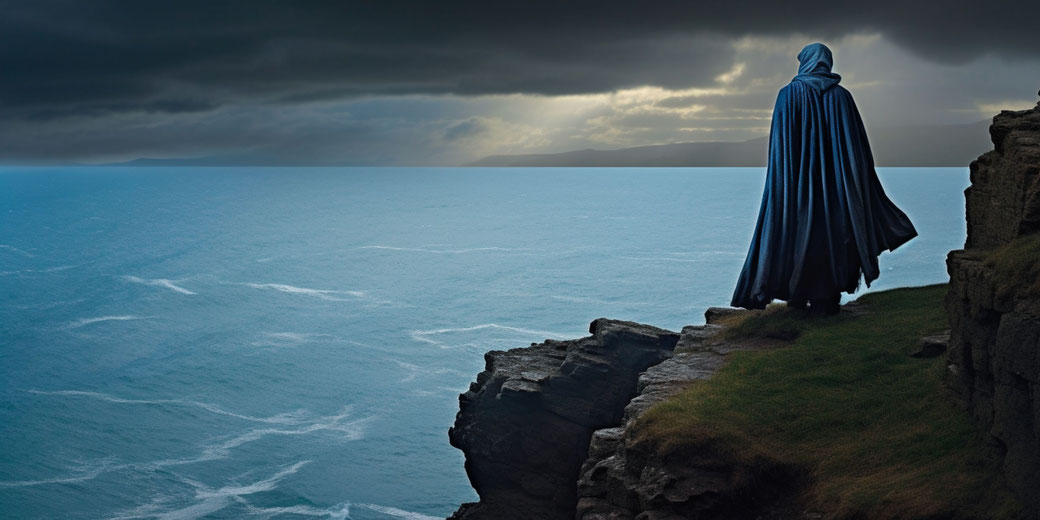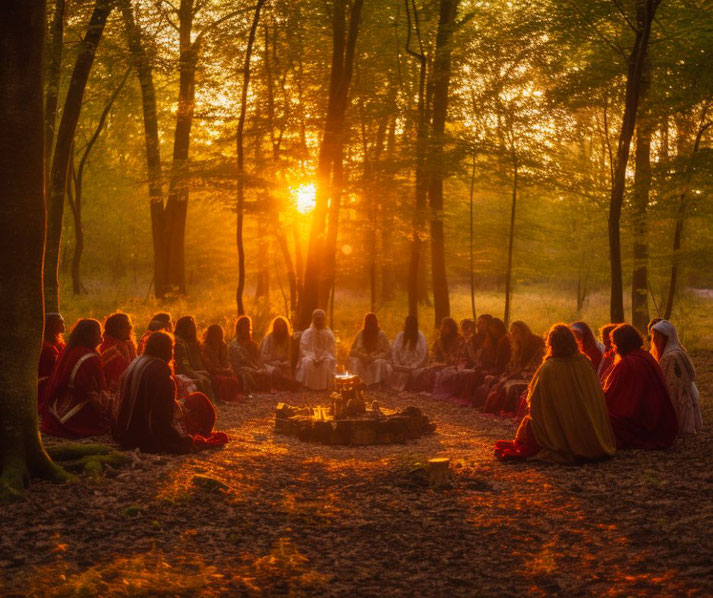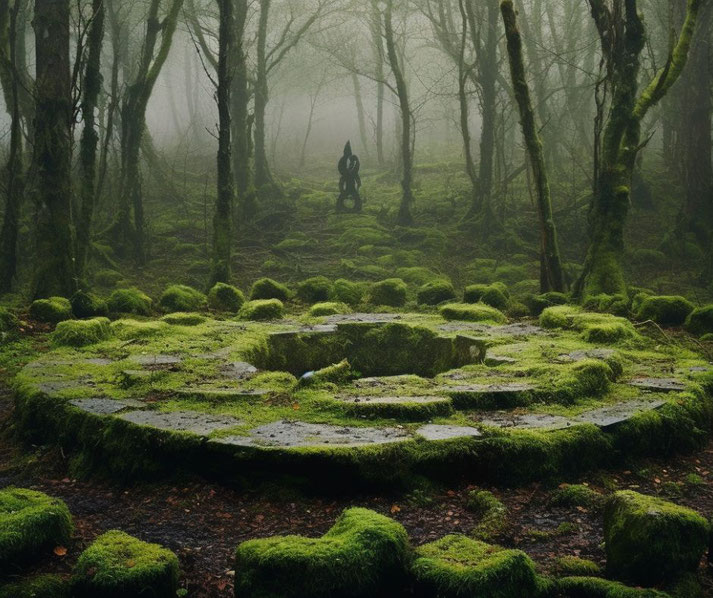Who were the mysterious, ancient Druids?

The druids were a fascinating and mysterious group of people who played a vital role in ancient Celtic cultures. They were the priests, teachers, judges, and advisors of the Celtic tribes, and they possessed a wealth of knowledge and wisdom that was revered by their contemporaries.
In this article post, we will explore who the druids were, what they did, and what they believed, based on the historical sources and archaeological evidence that we have.
What was a ‘druid’?
The word "druid" comes from the Latin "druides", which was derived from a Celtic word that may have meant "oak-knower" or "oak-seer".
The druids were associated with sacred groves of oak trees, where they performed their rituals and ceremonies.
The druids left no written records of their own, so most of what we know about them comes from the accounts of Roman and Greek writers, who often had a biased or hostile perspective.
The most detailed description of the druids comes from Julius Caesar, who encountered them during his conquest of Gaul (modern France) in the 1st century BCE.
What role did they have in society?
According to Caesar, the druids were a highly respected and influential class in Celtic society.
They were in charge of public and private sacrifices, which were considered essential for appeasing the gods and ensuring the well-being of the people.
They also taught young men various subjects, such as natural philosophy, astronomy, poetry, and theology, for up to 20 years.
They acted as judges and arbitrators in all kinds of disputes, and their decisions were final and binding.
They had the power to excommunicate anyone who disobeyed their rulings, which was seen as the worst punishment possible.
The druids also had political authority, as they could intervene in wars and negotiate peace treaties between rival tribes.
They had a chief druid who was elected by vote or by force, and they met once a year at a sacred place in the territory of the Carnutes, which was believed to be the center of all Gaul.

What powers were they said to have?
The druids had some privileges that set them apart from other classes. They did not pay taxes, they did not serve in the military, and they were exempt from capital punishment.
They also claimed to have access to secret knowledge that was not revealed to ordinary people.
One of their most important doctrines was the belief in the immortality and transmigration of the soul.
They believed that after death, the soul would pass into another body, either human or animal, and that this cycle would continue until the soul reached a state of perfection.
This belief made them fearless in the face of death and encouraged them to seek wisdom in life.
The darker side of the druids
The druids also practiced human sacrifice, which was seen as a way of offering the most precious gift to the gods.
Caesar reported that they would fill large wicker figures with living men, usually criminals or captives, but sometimes innocent victims if necessary, and then burn them alive.
Other Roman writers, such as Cicero, Tacitus, and Pliny the Elder, confirmed this practice, although some modern scholars have questioned its accuracy or frequency.
The druids also used divination methods, such as reading animal entrails or observing the flight of birds, to predict the future or interpret the will of the gods.
What happened to the druids?
The druids faced persecution and suppression by the Roman Empire, which saw them as a threat to its authority and religion.
The emperors Tiberius and Claudius issued edicts banning druidism in Gaul and Britain in the 1st century CE, and many druids were killed or exiled.
By the 2nd century CE, there is no mention of druids in the historical sources, suggesting that they had disappeared or gone underground.
However, some aspects of their culture and beliefs survived in the folklore and literature of Ireland and Wales, where they were portrayed as sorcerers, prophets, or poets who opposed Christianity or helped its spread.

What do you need help with?
Download ready-to-use digital learning resources
Copyright © History Skills 2014-2025.
Contact via email
With the exception of links to external sites, some historical sources and extracts from specific publications, all content on this website is copyrighted by History Skills. This content may not be copied, republished or redistributed without written permission from the website creator. Please use the Contact page to obtain relevant permission.





